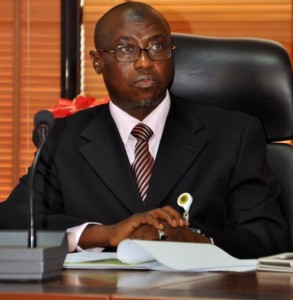
The Nigerian National Petroleum Corporation (NNPC) said that Nigerian companies are making giant strides, adding value in the oil and gas sector through capacity building. It views emerging trends in the industry as providing opportunities for local players to stand firm as strong competitors with foreign companies.
Group managing director of the NNPC, Maikanti Baru said this during a presentation on the topic ‘Collaboration and Local Capacity Development as an Enduring Strategy in a Low Oil-Price Environment’ at West African International Petroleum Exhibition and Conference (WAIPEC) forum in Lagos.
He noted that the industry has been fortunate to have had previous and current regimes that have recognized and promoted the establishment of institutions, enacted laws, identified key areas that can stimulate economic growth and provided the necessary support to businesses and companies that are willing to impact positively on the economy.
Citing a typical example of the success story of collaboration – TUPNI Egina (Total) FPSO DED Topside, Baru recalled that the Detailed Engineering Design (DED) of the Topside of TUPNI’s Egina FPSO project delivered safely, on time and within budget by a consortium of Nigerian Engineering companies led by NETCO.
The GMD said the project was a good example of successful collaboration and capacity development, adding that no engineering project of this magnitude has been handled locally because as no single local company had the capacity to do so.
“The management of NNPC in its wisdom approved for three local companies to collaborate and support the local execution of this project. This decision paid-off and has placed on record that over 80 per cent of the associated man-hours which was in excess of one million man-hours on a single project can be effectively executed in one project location in Nigeria” he said.
Listing the achievements associated with that, he said the project was the first of its kind In-country consortium arrangement which was successfully delivered, safely, on schedule and within budget, achieving zero LTI during the execution.
The project also ensured domiciliation of engineering in-country and achieved Nigerian content goals of 80 per cent by recording about one million man-hours out of which 90 per cent of it was carried out by Nigerians.